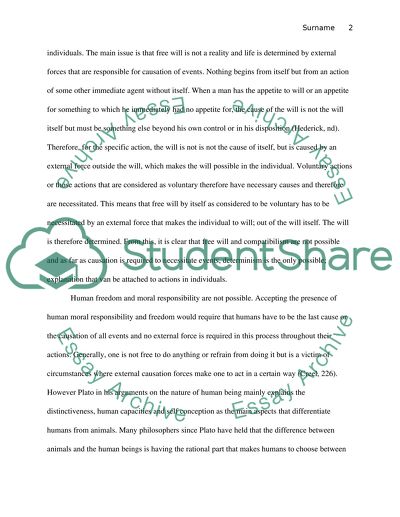Cite this document
(“Problem of Free Will Term Paper Example | Topics and Well Written Essays - 1500 words”, n.d.)
Retrieved from https://studentshare.org/philosophy/1438776-the-free-will-problem
Retrieved from https://studentshare.org/philosophy/1438776-the-free-will-problem
(Problem of Free Will Term Paper Example | Topics and Well Written Essays - 1500 Words)
https://studentshare.org/philosophy/1438776-the-free-will-problem.
https://studentshare.org/philosophy/1438776-the-free-will-problem.
“Problem of Free Will Term Paper Example | Topics and Well Written Essays - 1500 Words”, n.d. https://studentshare.org/philosophy/1438776-the-free-will-problem.


